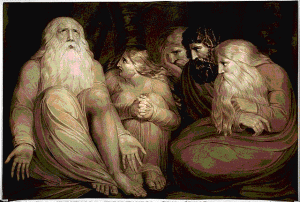 I’ve recently completed a draft of a paper callled “Two New Versions of Skeptical Theism” for an edited volume. This will definitely be going through a round of revisions, and so I’m posting a copy here in case anyone is interested in reading it and giving me comments or feedback. If you have anything, I’d love to hear it.
I’ve recently completed a draft of a paper callled “Two New Versions of Skeptical Theism” for an edited volume. This will definitely be going through a round of revisions, and so I’m posting a copy here in case anyone is interested in reading it and giving me comments or feedback. If you have anything, I’d love to hear it.
This is also something of an experiment with a new feature in Google Docs. I can now let people comment on a Google Doc without giving them editing access, and they can even comment without being logged in. I’m curious to see how this goes.
Here’s the abstract.
Abstract:
Skeptical Theists respond to the Problem of Evil by arguing that there may be goods that are beyond our understanding that might warrant a God in permitting horrendous evil. Because of this Skeptical Theists argue that we are not justified in believing the crucial premise in the Problem of Evil that maintains a God couldn’t have a justifying reason for the evil in this world. However, this strategy threatens to undermine any kind of reasoning about what a God would or wouldn’t do. Suppose you thought that God made a promise to do something good for you or humanity. For all you know, God might have a good reason to break that promise that is beyond your understanding. Call this the Reasoning About God Problem. In this paper, I offer two new versions of skeptical theism that avoid the Reasoning About God Problem.
I used to be sold on the idea that Skeptical Theism was a terrible way to respond to the Problem of Evil. It wasn’t until I started thinking more through how someone might respond to the Reasoning About God Problem (which I used to think was fatal) that these versions dawned on me. Now I think there is something along these lines that might be a viable response.
Here’s the paper. If you type comments on this document and you are not logged in, don’t forget to sign them so I know who you are and can thank you in the acknowledgments.

Hi Andrew,
I enjoyed reading your paper on skeptical theism. I have a paper in Pojman’s Intro to Phil. text (“The Problem of Evil: Too Much Suffering”) defending the problem of evil in which I try to sidestep the vanInwagen objection and that raises, I think, a different problem for skeptical theism. It does like this:
1. If God exists, there is not excessive, unnecessary suffering.
2. But there is such suffering.
3. So God does not exist.
I say that if the skeptical theist argues that we are in no position to judge that (2) is true, he is faced with the following challenge by Young Earthers (they think that the earth was created 6K years ago…or even 100 years ago or 5 minutes ago!): you are in no position to judge that the earth is older. For all you know, there is a God (an epistemic and moral superior) who created the earth with all its signs of age for reasons beyond our ken. But when considering that hypothesis and the standard one that says the earth is billions of years old, isn’t the best explanation the standard one? So shouldn’t we believe it and reject the Young Earther’s saving hypotheis?
I also read your essay on intuitions as seemings. I fully agree with you on that one. I have an essay in A Companion to Epistemology on intuition where I give an example involving Monty Hall and Let’s make a deal where I argue for the same view (and claim I’m following Bealer here). I have a paper in the Southern Journal of Philosophy (March, 2012) critical of coherentism in which there is a small section on intuitions where I argue the same. Your paper is much more thorough, and I like what you say.
Bruce